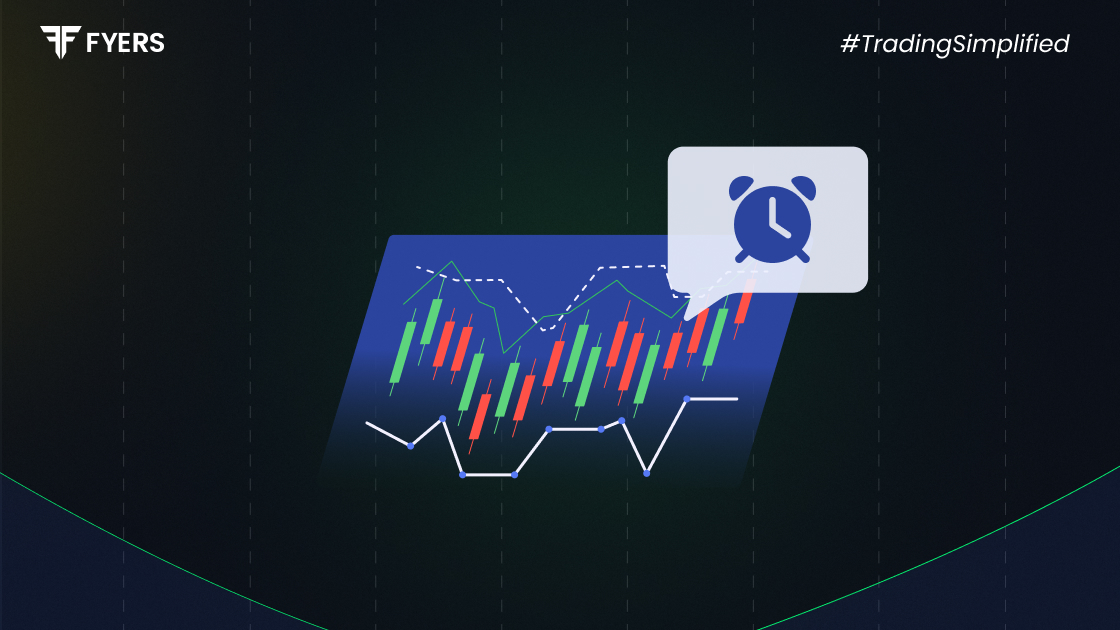

 14 May, 2025
14 May, 2025
 3 mins read
3 mins read

Understanding stock market timings in India is essential for anyone looking to trade or invest wisely. Whether you’re dealing in equities, commodities, derivatives, or forex, knowing when markets open and close helps you plan better. In this guide, we’ll break down the timings of the NSE, BSE, MCX, and more - so you never miss a trading opportunity.
The two primary stock exchanges in India are the National Stock Exchange (NSE) and the Bombay Stock Exchange (BSE). Both follow the same trading hours for equity markets.
The pre-open market session runs from 9:00 AM to 9:15 AM. This session helps smoothen volatility and determine opening prices. It’s divided into:
Order entry time (9:00 AM – 9:08 AM): You can place, modify, or cancel orders.
Order matching time (9:08 AM – 9:12 AM): The system matches orders to determine the opening price.
Buffer period (9:12 AM – 9:15 AM): No activity; preparation for normal trading.
The main action happens here. The normal trading session is from 9:15 AM to 3:30 PM, Monday to Friday. This is when you can buy and sell stocks in real-time.
If you're wondering about the Indian market open time, it's 9:15 AM, when the actual buying and selling starts.
After 3:30 PM, there's a short window for placing orders at the closing price. This post-closing session happens from 3:40 PM to 4:00 PM. Orders are settled the next trading day.
Derivatives trading hours (including Futures & Options or F&O) follow the equity market schedule:
Pre-open: 9:00 AM – 9:15 AM (only for equity derivatives).
Regular session: 9:15 AM – 3:30 PM.
For currency and interest rate derivatives, the timing extends till 5:00 PM. So, plan accordingly if you're dealing with those.
If you're into gold, crude oil, or agri-commodities, you’ll be trading on MCX (Multi Commodity Exchange) or NCDEX (National Commodity & Derivatives Exchange).
Here are the commodity market timings in India:
Morning session: 9:00 AM to 5:00 PM
Evening session (only for MCX): 5:00 PM to 11:30 PM (till 11:55 PM during daylight saving in the US)
These extended hours help traders align with global commodity markets. If you're looking up MCX trading hours, now you know!
The forex market timings in India depend on the type of currency pair being traded.
Open: 9:00 AM
Close: 5:00 PM (Monday to Friday)
Open: 9:00 AM
Close: 7:30 PM
Forex trading is generally closed on Saturdays and Sundays. Keep this in mind if you trade during international time zones.
Muhurat trading is a special one-hour session held on Diwali, the festival of lights. It's considered an auspicious time to start new financial ventures.
Muhurat trading time is usually announced by the stock exchanges a few days before Diwali. While the exact hour varies each year, it typically falls between 6:00 PM to 7:15 PM. The session includes:
Pre-open: 15 minutes
Normal trading: 1 hour
Post-closing: 10 minutes
Many investors participate in marking the beginning of a prosperous year.
Whether you're an early bird catching the Indian market open time or a night owl trading in the MCX evening session, knowing the stock market timings in India gives you an edge. From BSE market timings to forex market timings in India, each segment follows a distinct schedule. Plan your trades wisely, track market trends, and stay ahead.
Commodity markets like MCX and NCDEX run for longer hours compared to equity markets. While equity trading happens from 9:15 AM to 3:30 PM, commodity markets are open till 11:30 PM or even 11:55 PM for some contracts. This gives traders more time to react to global price changes.
The pre-open market session begins at 9:00 AM and lasts till 9:15 AM. It's primarily used for price discovery and reducing volatility before the market officially opens.
Yes, NRIs can trade during regular Indian market hours, i.e., 9:15 AM to 3:30 PM, provided they have an NRI trading and demat account with the required approvals (like PIS - Portfolio Investment Scheme). However, they are not allowed to trade in currency derivatives and commodities.
If you place an order after market hours, it becomes an After Market Order (AMO). This order gets queued and is executed automatically once the market opens the next day. Different brokers have different time slots for accepting AMOs, so check with your trading platform.
Calculate your Net P&L after deducting all the charges like Tax, Brokerage, etc.
Find your required margin.
Calculate the average price you paid for a stock and determine your total cost.
Estimate your investment growth. Calculate potential returns on one-time investments.
Forecast your investment returns. Understand potential growth with regular contributions.